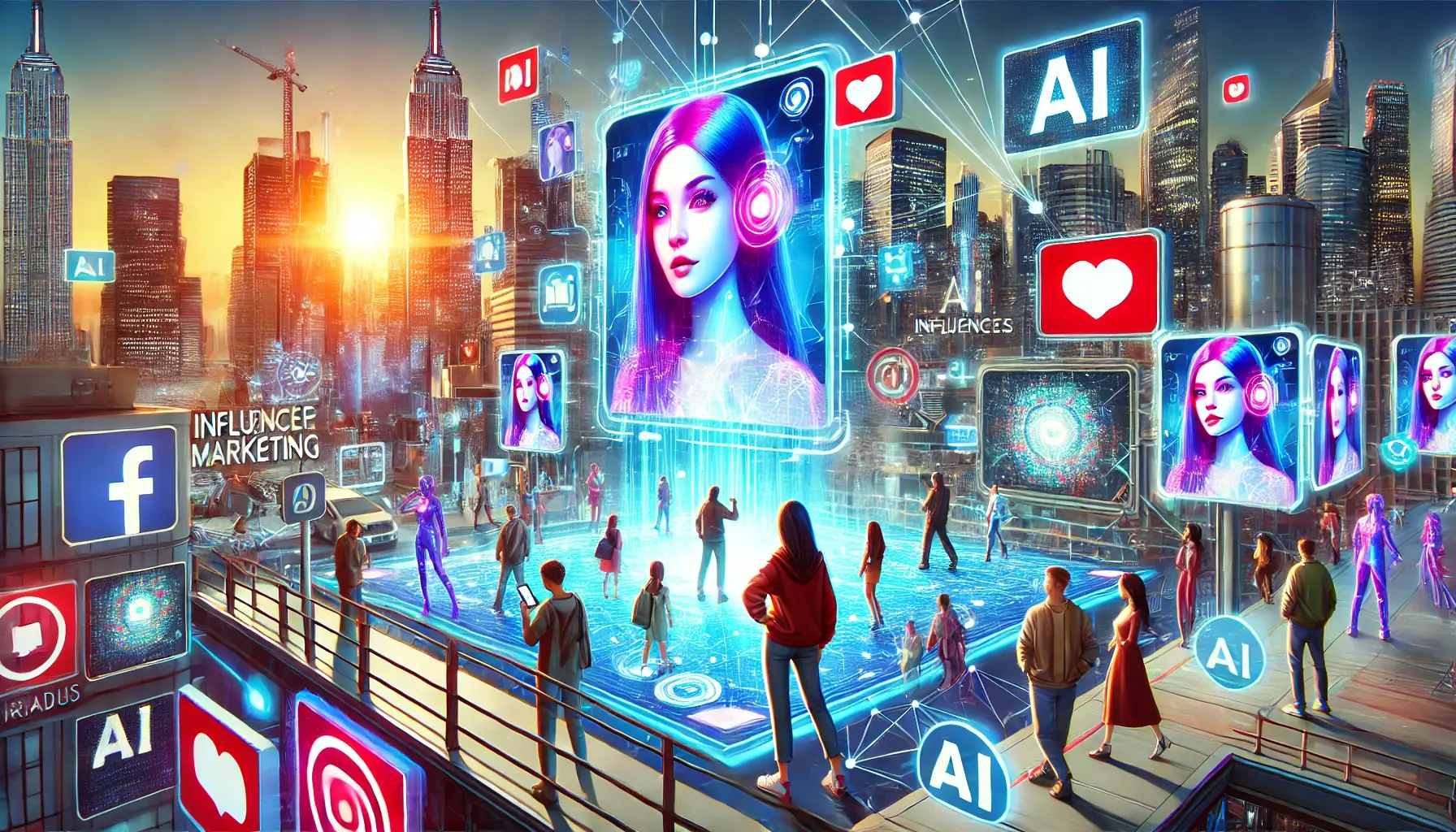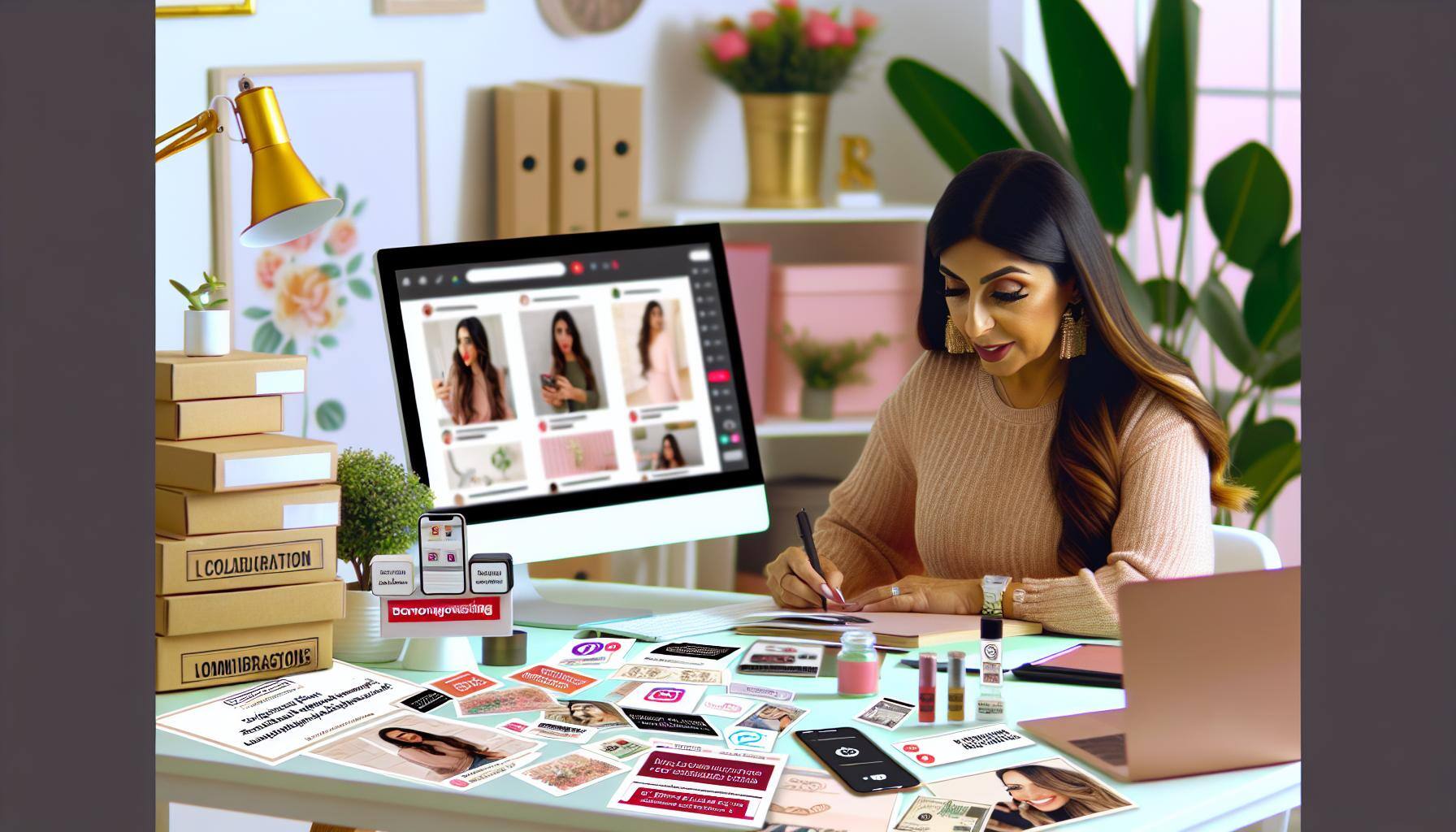3 min read
How to Create an AI Influencer
The rise of artificial intelligence (AI) has opened up new possibilities in digital marketing, including the creation of AI influencers. These...
4 min read
The Amazing Team at Virtual Marketer Max : Oct 14, 2024 7:26:03 AM
The rise of AI (artificial intelligence) in the digital marketing world has led to the emergence of AI influencers—virtual personas powered by advanced algorithms that mimic human interaction. These digital entities are rapidly gaining traction in the influencer marketing space, particularly in the USA, where influencer marketing has become a key component of brand strategies. AI influencers bring numerous benefits to businesses, including scalability, consistency, and enhanced control over messaging. In this article, we’ll explore 11 profitable ways people are leveraging AI influencers to drive growth and revenue.
One of the most popular ways to monetize AI influencers is through brand partnerships and sponsored content. Just like their human counterparts, AI influencers can represent brands by creating and sharing content that promotes products or services. This is particularly beneficial for companies looking for a consistent and reliable influencer who won’t have off-days or scandals.
In the USA, brands in industries like fashion, beauty, and technology are increasingly collaborating with AI influencers for product promotion. By featuring a product in posts, videos, or stories, AI influencers generate awareness and drive sales for their brand partners.
Affiliate marketing is another lucrative avenue where AI influencers can thrive. By promoting products through affiliate links, AI influencers can earn a commission on sales generated through their recommendations. This strategy works well in industries like fitness, health, and consumer electronics, where consumers seek trusted recommendations.
Virtual influencers often have an established audience with specific interests, making them ideal partners for affiliate marketing campaigns. AI influencers can regularly post product reviews, tutorials, or unboxing videos with affiliate links to increase conversion rates.
AI influencers can also be leveraged to create and sell branded merchandise. Many digital influencers have strong, recognizable personas that can be monetized through apparel, accessories, or other physical products. In the USA, where e-commerce is booming, this presents a significant opportunity for creators and brands.
For example, an AI influencer known for advocating sustainable fashion could partner with eco-friendly clothing lines to release limited edition items or even launch a personal merchandise line. Virtual Marketer Max provides options to integrate e-commerce features with AI influencers to facilitate these opportunities.
With the fashion industry increasingly moving into the digital space, AI influencers are now being used to showcase digital fashion collections and virtual try-ons. Brands can leverage AI influencers to model digital clothing items, allowing customers to see how the product fits or looks in different settings before making a purchase.
This type of content is especially appealing to younger audiences who are more accustomed to shopping online. AI influencers, with their perfect digital avatars, can effortlessly showcase products, reducing costs associated with traditional photo shoots and fashion shows.
A popular tactic in the USA is social media takeovers, where an influencer controls a brand’s social media for a set period. AI influencers are increasingly being used for this purpose because they can consistently post without requiring rest or breaks. AI influencers can engage with followers, post stories, and respond to comments while promoting the brand’s products or services.
This strategy helps brands boost engagement and attract new followers by leveraging the unique and engaging persona of the AI influencer.
With the growth of virtual events, AI influencers are increasingly being used as hosts for online webinars, product launches, or virtual meetups. Their appeal lies in their ability to maintain a professional demeanor, manage large virtual crowds, and offer an immersive experience for attendees.
For instance, an AI influencer could host a virtual fashion show, narrating and interacting with the audience in real-time, creating a memorable brand experience without the need for human intervention.
AI influencers can also be used to create highly personalized and targeted ads. Since these virtual influencers are powered by algorithms that track user behavior, they can generate content and recommendations tailored specifically to individual users. This results in more relevant advertising and higher engagement rates, particularly in the USA’s competitive digital advertising landscape.
Brands can use AI influencers to craft custom advertisements for different demographic groups, ensuring that each ad resonates with its intended audience.
AI influencers are increasingly being used to interact directly with customers, answer queries, and drive engagement through platforms like Instagram or Facebook. With the ability to engage in thousands of conversations simultaneously, AI influencers can handle a high volume of inquiries, driving lead generation and providing personalized responses in real-time.
In the USA, where customer experience is a priority for many businesses, AI influencers are proving to be an asset for automating customer engagement while maintaining a high level of personalization.
Many companies are now creating AI influencers specifically to act as brand ambassadors. These virtual brand ambassadors can engage with the audience on a regular basis, providing updates, promoting new products, and establishing a long-term connection with customers. This helps build brand loyalty and increases customer retention.
AI ambassadors can represent the brand 24/7, across various time zones, without the need for sleep or time off, making them ideal for global businesses.
AI influencers are adept at creating and curating content. Whether it’s social media posts, blogs, or video content, these virtual entities can produce high-quality material that resonates with audiences. This is particularly useful for brands that need a constant stream of content but want to avoid the unpredictability or scheduling conflicts of human influencers.
Additionally, AI influencers can curate relevant content from other creators, building their online presence and becoming thought leaders in their niche.
The rise of blockchain technology and NFTs (non-fungible tokens) has opened up a new revenue stream for AI influencers. Virtual influencers can create and sell digital artwork, avatars, or other collectibles as NFTs. Fans and followers can purchase these one-of-a-kind items, adding value to their collection and further enhancing the influencer’s brand.
In the USA, where the NFT market is expanding rapidly, AI influencers are uniquely positioned to tap into this trend by producing limited edition digital collectibles that resonate with tech-savvy audiences.
As technology continues to evolve, the potential of AI influencers to drive revenue and growth becomes increasingly apparent. From brand partnerships to NFTs, there are countless ways to leverage AI influencers to build a profitable business. The USA, with its vibrant and diverse influencer marketing landscape, provides a fertile ground for AI influencers to thrive.
For those looking to explore the world of AI influencers, Virtual Marketer Max is the best platform to customize and launch your own AI influencer, offering cutting-edge tools to help you succeed in the rapidly growing virtual influencer space.

3 min read
The rise of artificial intelligence (AI) has opened up new possibilities in digital marketing, including the creation of AI influencers. These...

5 min read
In today's social media, influencer marketing has become a powerful tool for brands looking to connect with their target audience. Traditionally,...

7 min read
Becoming a lifestyle influencer Becoming a lifestyle influencer is a dream for many, offering the chance to share your passions, inspire others, and...